AI and Machine Learning in Ornithology
6 February 2025 10:05am
10 February 2025 1:20pm
Thanks for reaching out.
Please send us an email: smithy@kznwildlife.com and david.ehlers.smith@birdlife.org.za and we can have chat. Review and meta-analysis welcome as well as advances that would assist African Ornithology.
Look forward to having a chat,
Yvette
Low-power acoustics systems
27 January 2025 1:44pm
10 February 2025 10:42am
10 February 2025 10:49am
Hi Julia,
Thank you for your reply. Your work on connected acoustic recorders sounds very interesting, and we’d love to learn more about your application and the enhancements to Bugg. We’ll contact you soon to arrange a discussion.
Looking forward to it!
Thank you,
Best regards,
Sebastian
10 February 2025 10:52am
Hi Lucille,
Thank you for your reply! We’d be really interested in learning more about your developments. We’ll contact you soon to arrange a discussion.
Thank you.
Best regards,
Sebastian
Paper: Technology's social and structural effects in environmental organizations
10 February 2025 6:00am
Training Educators in Nigeria how to save the Earth with Empathy & Computational thinking; use AI robotics #hummingbirdbit to make a bee waggle! 🐝
10 February 2025 1:48am
Collecting interesting resources to visualise spatio-temporal data from wildlife observations
9 February 2025 12:21pm
Light in the dark: How AI and FLIR cameras are saving black rhinos in Kenya
8 February 2025 12:49pm
land mammals on xeno-canto
1 February 2025 3:43pm
4 February 2025 8:56am
Brilliant! We'll look into archiving here. Where we have labelled data with 100's of examples of each call for each species (Peruvian Primates mostly) is that something you are looking to host? or do you prefere a more curated submission?
6 February 2025 10:27pm
7 February 2025 5:18pm
That is splendid news! Thanks Willem-Pier!
AI for Bird and Bat Recognition
7 February 2025 11:57am
7 February 2025 5:06pm
Hi Lorenzo,
I highly recommend the OpenSoundscapes package (developed by the Kitzes Lab at U Pittsburgh) - there are workflows to build your own CNNs there, the documentation is really thorough, and the team are very responsive to inquiries. They also have a bioacoustics 'model zoo' that lists relevant models. The Perch model from Google would be good to look into as well.
Some recent papers I've seen that might also be worth checking out -
- Advanced montane bird monitoring using self-supervised learning and transformer on passive acoustic data
- A good horizon scan paper - The potential for AI to revolutionize conservation: a horizon scan
- Challenges and solutions for ecologists adopting AI
- And perhaps not directly related, but a new framework for deploying edge models onto recorders was just released - acoupi: An Open-Source Python Framework for Deploying Bioacoustic AI Models on Edge Devices
Hope that helps a bit!
Good Reads?
24 October 2017 4:54pm
1 December 2018 3:27am
There are two great articles about the issue of bird poaching in the Mediterranean and its serious threat to Palaearctic bird populations by Jonathan Franzen.
A 2010 article in the New Yorker,
https://www.newyorker.com/magazine/2010/07/26/emptying-the-skies
and a 2013 National Geographic feature,
https://www.nationalgeographic.com/magazine/2013/07/songbird-migration/
I wrote a 2017 blog post for National Geographic about the topic of bird poaching in Cyprus,
https://blog.nationalgeographic.org/2017/11/21/can-anti-poaching-activism-save-25-million-birds-a-year/
Regards,
Jason
4 December 2018 6:47pm
Your blog post was great. keep up the good work!
Michael
7 February 2025 4:54pm
Not a book, but a very real documentary:
Stroop - Journey into the Rhino Horn War
Conservation dogs deployed in Assam to counter poaching
26 June 2017 3:33pm
27 June 2017 2:53pm
Awesome!
3 January 2020 7:13pm
Hi jprobert, my name is Jennifer Hartman and I work with Rogue Detection Teams. I wanted to share some other resources for you if you are still interested in learning more about conservatin detection dogs and thier applications. From live animals, invasive species as well as scat and toxin surveys, our teams have conducted a great many projects around the world and we're happy to talk shop with you. There are also several other detection dog groups around the world and if you would like to be put in touch with them, we're happy to assist. Please let us know if we can help. We can be reached at contact@roguedogs.org or you can first check us out at roguedogs.org. Warm regards, Jennifer
7 February 2025 4:27pm
Yes, Belgian Malinois dogs are very common nowadays to accompany park rangers in South Africa. 🐕🦺
The park I worked with had three of them, but training them is quite expensive, both time- and money-wise.
Still, they are incredibly good and worth this effort. We had them walk along after fencecuts and they led us right past all the snares laid by poachers. Not to say how fierce they can be if things get serious and their handler lets them loose on a target...
They also help the ground rangers sense natural dangers like lions etc. earlier, or also while otherwise occupied (with eg radio etc).
Rhino poaching statistics in South Africa
1 June 2016 2:39pm
7 February 2025 3:50pm
Thank you so much for sharing!
They seem to only state the official DFFE statistics nowadays. From my connections in SouthAfrica these numbers don't always seem to reflect the actual case anymore.
On the note of preventing illegal rhino horn trade, EMSfoundation recently published a comparison of the government's rhino horn stockpile over the past years. As it is shrinking, the question arises why they are not burnt?
The numbers lower partly due to theft but possibly also due to corruption.
Writing about conservation technologies on LinkedIn
7 February 2025 2:55pm
acoupi: An Open-Source Python Framework for Deploying Bioacoustic AI Models on Edge Devices
7 February 2025 1:39am
Mothbox Expedition Video - Preview
6 February 2025 8:44pm
6 February 2025 9:02pm
featuring @briannajohns @hikinghack @Hubertszcz
WILDLABS Behind the Buzz: Data and Information Access
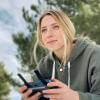 Talia Speaker
and 1 more
Talia Speaker
and 1 more
6 February 2025 5:56pm
SPOTS Internship Programme
6 February 2025 3:38pm
🌍 explorer.land Beginners Webinar: Create your first project and funding opportunity
6 February 2025 1:05pm
Machine learning for bird pollination syndromes
25 November 2024 7:30am
3 January 2025 3:55am
Hi @craigg, my background is machine learning and deep neural networks, and I'm also actively involved with developing global geospatial ecological models, which I believe could be very useful for your PhD studies.
First of all to your direct challenges, I think there will be many different approaches, which could serve more or less of your interests.
As one idea that came up, I think it will be possible in the coming months, through a collaboration, to "fine-tune" a general purpose "foundation model" for ecology that I'm developing with University of Florida and Stanford University researchers. More here.
You may also find the 1+ million plant trait inferences searchable by native plant habitats at Ecodash.ai to be useful. A collaborator at Stanford actually is from South Africa, and I was just about to send him this e.g. https://ecodash.ai/geo/za/06/johannesburg
I'm happy to chat about this, just reach out! I think there could also be a big publication in Nature (or something nice) by mid-2025, with dozens of researchers demonstrating a large number of applications of the general AI techniques I linked to above.
6 February 2025 9:57am
We are putting together a special issue in the journal Ostrich: Journal of African Ornithology and are welcoming (review) papers on the use of AI in bird research. https://www.nisc.co.za/news/202/journals/call-for-papers-special-issue-on-ai-and-ornithology
AI in Ornithology
1 November 2024 1:10pm
4 November 2024 6:00am
Thanks for flagging! We might be interested to submit our work on acoustic monitoring system.
6 February 2025 9:50am
Hi Adrien,
Submissions are open for the special addition. Please email David Ehlers Smith - david.ehlers.smith@birdlife.org.za for more details. We are also soliciting reviewers.
Best,
Yvette
Summer Internships at SDZWA (Conservation Technology Lab)
6 February 2025 3:49am
SDZWA Conservation Tech Summer Fellowship
5 February 2025 9:09pm
Giving different types of labeled data to the community - solutions?
5 February 2025 4:19pm
Online platform for beta testing?
5 February 2025 4:20am
Hiring a Senior Software Developer
5 February 2025 12:35am
Cameras to Capture Nocturnal Time-Lapse Videos
4 February 2025 3:24pm
4 February 2025 3:36pm
My company builds a thermal video recorder that's Pi based. In principle that means it should be fairly simple to get it to go to sleep and wake up again and record and then go back to sleep again with a minor customization. It can record video from a tiny thermal imaging camera. So I think it can do what you want. Please reach out if you think this fits your needs. Thermal imaging should provide the best night vision available, it would see as well at night as day. Usually better.
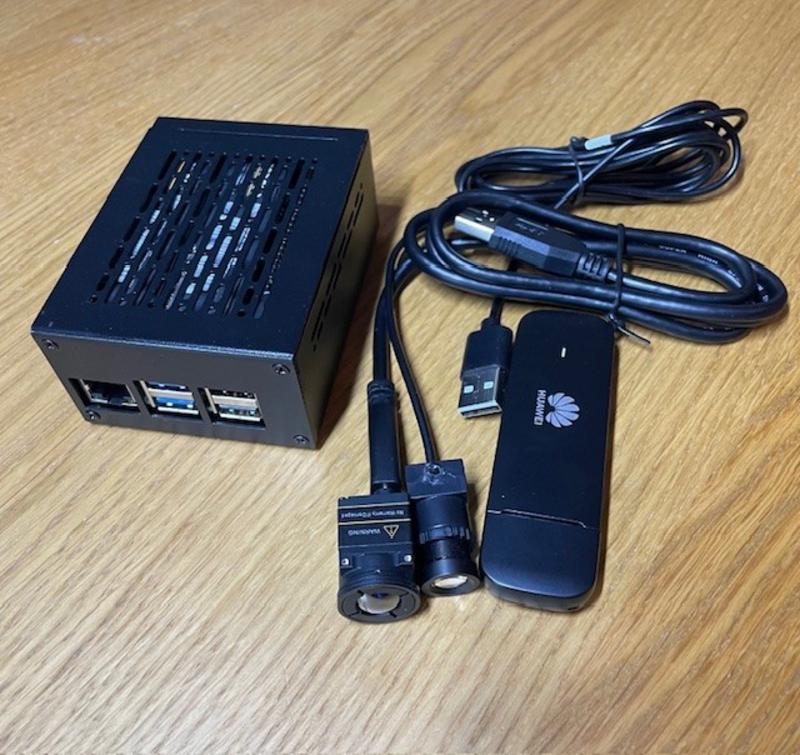
This video shows you how good the night vision is:
4 February 2025 6:00pm
Dear Kim, thank you for your suggestion and your quick response. Do the thermal video recorders rely on wifi for storing/transferring data or do they also work with SD cards? And could you give me an estimate of the approximate price range?
4 February 2025 6:25pm
I’ll reply with further commercial details direct to you. I think you are not supposed to discuss to that level in these discussions. This is managed product at this stage, not mass market (yet), so I customise it for people.
It doesn’t work with sd cards directly. The normal way is via a network. But we can discuss your preferred way of working. It could be network, it could be 4G stick with vpn. My preference is to install them with nvme SSDs as they are reliable and fast, so that translates better into support.
I’ll message you.
Free/open-source app for field data collection
6 December 2024 2:04pm
4 February 2025 3:52pm
Awesome, thank you!
4 February 2025 3:57pm
Thanks! Essentially field technicians, students, researchers etc. go out into the field and find one of our study groups and from early in the morning until evening the researchers record the behaviour of individual animals at short intervals (e.g., their individual traits like age-sex class, ID, what the animal is doing, how many conspecifics it has within a certain radius, what kind of food the animal is eating if it happens to be foraging). Right now in our system things work well but we are using an app that is somewhat expensive so we want to move towards open-source
4 February 2025 4:26pm
Thanks! I am familiar with EarthRanger but wasn't aware it could be used for behavioural data collection
Technical Assistant (m/f/d) | Moveapps
4 February 2025 8:32am
WhatsApp images
3 February 2025 5:08pm
3 February 2025 8:33pm
Hi Paula, you're right that WhatsApp strips EXIF metadata (including GPS data), which makes it tricky to collect location information when people share photos. Perhaps you could use Google Photos/Apple Photos. Both automatically embed location data in the images if the device’s location services are enabled when the photo is taken. Then, if users upload their images to one of these platforms, you can ask them to share the photo with a link (which will include the location).
Otherwise, do you know why people are reluctant to use iNaturalist? Seek has a simpler interface and could be a solution for those hesitant about using iNaturalist ?
Hope that helps,
Cheers,
Lucie
Trail Cameras in the City
3 February 2025 6:22pm




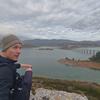
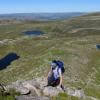
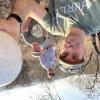

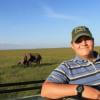

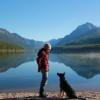



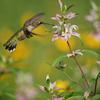

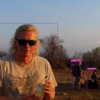



10 February 2025 3:28am
Hello,
I am very interested in possibly contributing a paper for this issue, but I study waterbirds in Texas. Would this be open for review papers or meta-analysis? Or deployment of new tools?